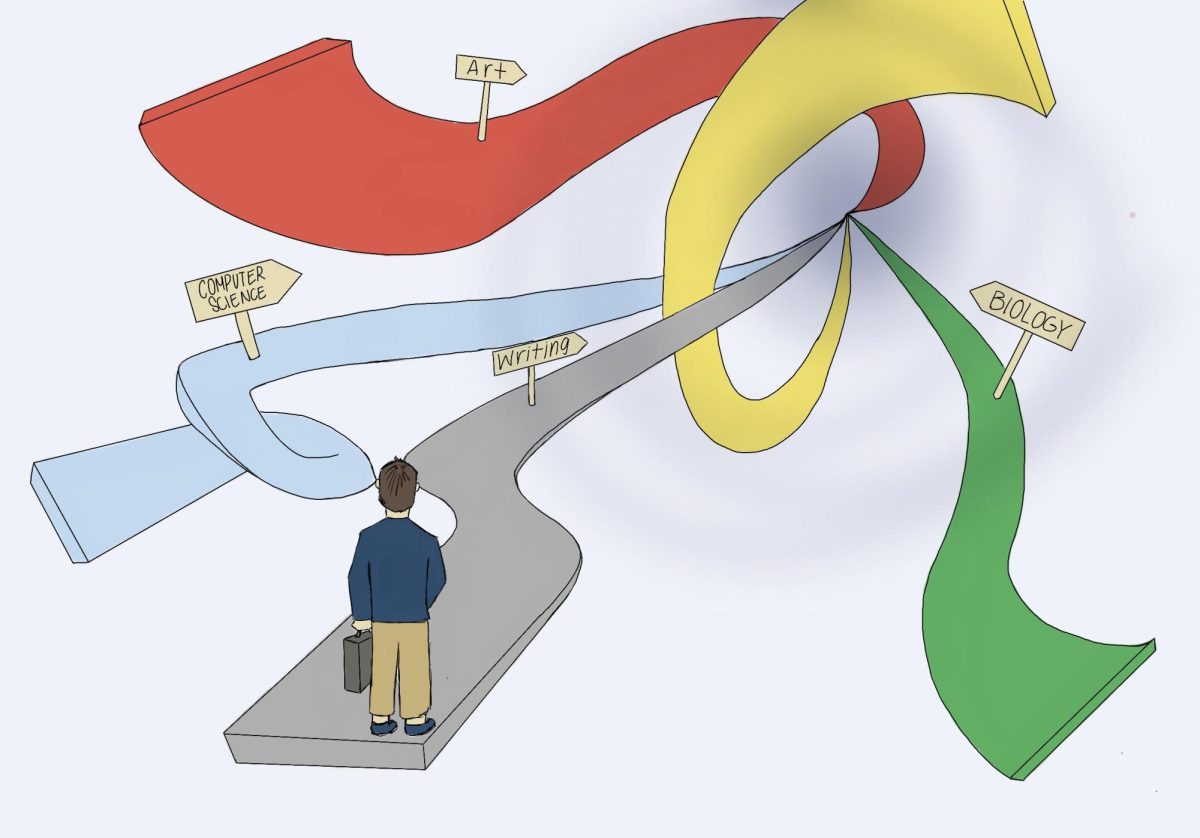Perfect GPA, perfect extracurriculars, just be a perfect student. As we grew up, the pride we once felt for mastering cursive turned into picking apart every tiny flaw in our AP Literature timed writes. However, perfectionism is not a novel concept, simply a shifted one. The outlook that was once easily achieved even with a squiggly “g” was now out of grasp even if I aced my work. Second semester of junior year; my last assignment grade that was entered in my gradebooks was 100%. In the common reach for that 90-point-whatever percent in APUSH, I had worked long nights for the final project. It needed to be perfect. And it was, as marked by that 50/50 on the rubric. But it wasn’t enough. A perfect final project and I still ended with 89.8% in the class. We’re told a B is good, something to be proud of, and maybe without the stress of perfection, we would be. Perfect GPA, perfect extracurricular, just be a perfect student. Perfectionism, however, is not the cause of our problems. It is instead our nature to depend on it rather than try for it that leaves us in shambles.
When we seek perfection, we tend to put our best foot forward. Wanting to produce something that is flawless forces me to truly think about how to get there, rather than half-heartedly and aimlessly attempting the task. I break down my tasks into smaller tasks I know I can execute individually before putting them all together. Over my high school years, the daunting tasks of having to study for tests, get assignments in, and be part of school events felt impossible until I began to list what I wanted to accomplish each day. It felt impossible to perfect every aspect of my life. No one can handle the stress of having to do everything right. However, the long-term goal of perfection overall allows me to strive for a lifestyle that preserves my mental health but gives me a sense of purpose. The goal of perfection has allowed me to change my study habits into organizational skills that I apply to everything, regardless of the task at hand.
When perfectionism accumulates like a rain cloud over our heads, it can hurt us. For a long time, I viewed my life through a rubric that required excellence in every regard, and if I didn’t meet that standard, I would be stressed. But I shifted my focus to incorporate the idea that perfectionism – like almost everything – is a process. While it is stressful to not meet standards, it is crucial to remember that being perfect should always be something we work towards, not a requirement. It is essential that we care enough to want to be excellent, but realistic enough to know what we are capable of. This discrepancy between effort and outcome must be understood when thinking of perfection. The pressure to achieve perfection can be counterproductive when it is thought of as a sole measure of our success, but when it is used as motivation, it provides us a healthy balance between ambition and reality.
Part of perfection means acknowledging our efforts and understanding that perfection isn’t attainable. However , the pursuit of it will lead to personal growth and push us to test our limits, and above all, give us something to be proud of when we do get close. Perhaps I am not a perfect student with a perfect GPA anymore thanks to APUSH. But, I am proud. Proud of my perfectionism.








